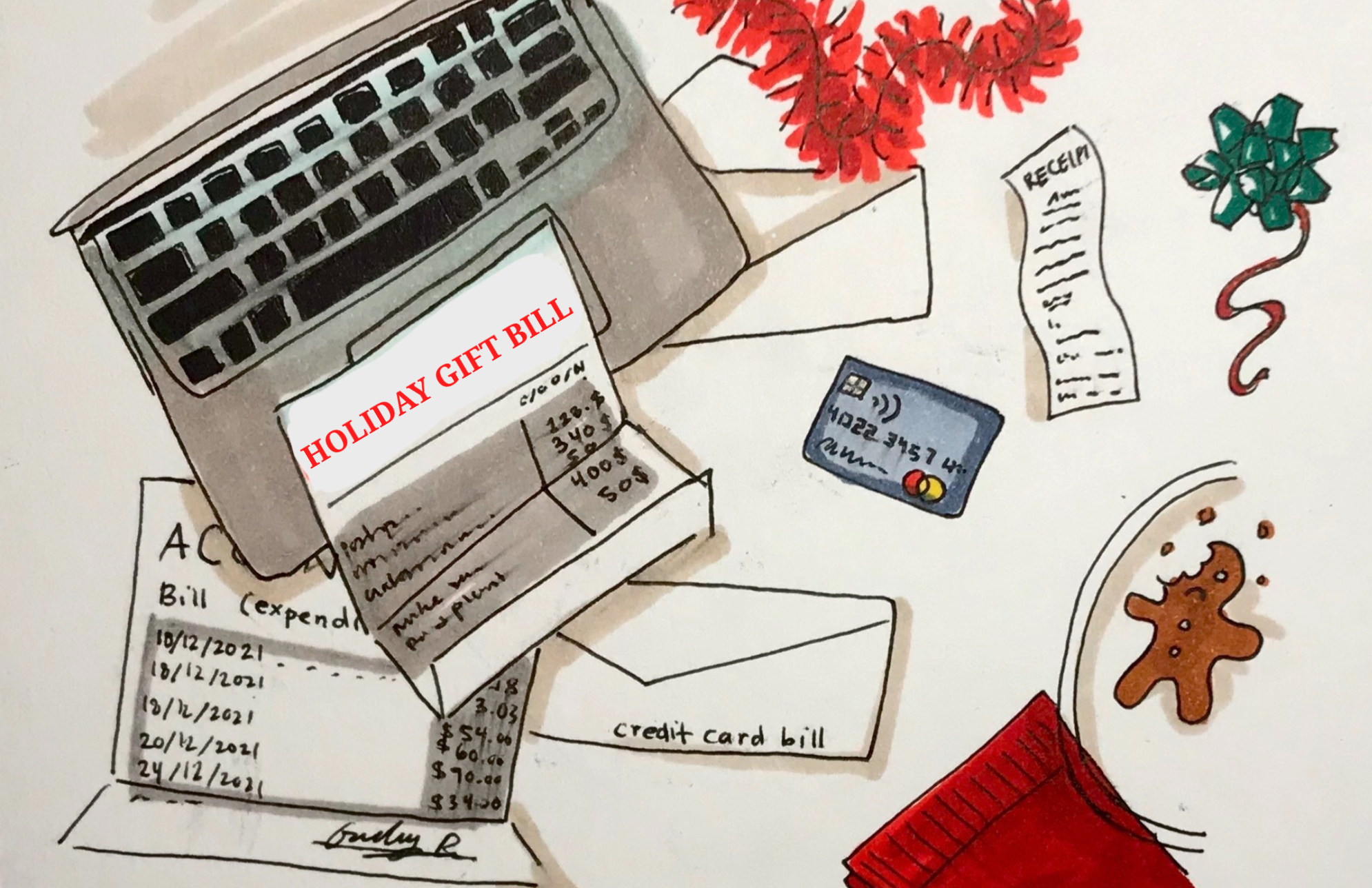In 2020, the average Canadian spent $693 on Christmas gifts. The Retail Council of Canada has predicted that the average Canadian spent $792 in 2021.
Does this amount sound familiar to you? Individual expenditures on holiday gifts will vary depending on individual incomes, but many Canadians feel like they spend a lot of money during the Christmas holidays. Perhaps we should consider where that obligation to spend comes from, and how we can deal with the financial aftermath.
Obligations, obligations
It is undeniable that there is an expectation to buy gifts during the holidays. Gift-giving is inherently guided by our interpersonal relationships and their depth. A psychological review conducted by the University of Hertfordshire noted that the obligation to buy gifts is rooted in a desire to express appreciation and love toward the people with whom we are in a personal relationship. Gift-giving is also contextually situated. Just like any other person, I’d love for my best friend to buy me a spontaneous gift in the middle of summer, but gifts are usually only expected to be given on specific occasions, such as Christmas. If my best friend bought me a gift during the summer, I would be surprised, as there would be no context to justify it.
In this sense, the obligation to buy gifts is inspired by our desire to nurture our interpersonal relationships, and mostly guided by our social traditions.
Credit cards and guilt
Consumers who get caught up in the socioemotional traditions of the holidays are likely to rack up debt. According to a survey conducted by the Angus Reid Forum in 2021, 23 per cent of the surveyed shoppers exceeded their spending limits on Black Friday and Cyber Monday by around $250. On a larger scale, Tashia Batstone, the CEO of FP Canada, noted that Canadians are expected to owe $814 more in debt as they hobble into the new year –– and I say ‘hobble’ for a reason, given the large sack of debt they are now carrying on their backs.
Fortunately, 60 per cent of survey respondents noted that they stayed on budget. I am part of that 60 per cent, but despite having avoided Christmas debt this year –– motivated by my irrational fear of owning a credit card –– I find myself feeling financial guilt nonetheless.
Maggie Baker, a psychologist and financial therapist, says that consumers must have a conversation with people with whom they have the ‘big three’ relationships — their family, friends, and partners — to see what their expectations are. After all, COVID-19 has changed the financial situations for many Canadians, and with increased economic instability given the spread of the Omicron variant, our spending habits have been humbled. Household spending reduced by 13 per cent during the second quarter of 2020 — a record-breaking decrease.
In this sense, discussing your budget with people in your ‘big three’ and talking with them about what they want is the most ideal course of action for the next year.
Getting over the financial hump, mental or otherwise
Re-evaluating our gifting structure is another viable option. Amy Richardson — a premium planner for Schwab Intelligent Portfolios, a financial portfolio management service — suggests that we do secret Santa exchanges next year as opposed to buying a gift for each individual loved one. Establishing a spending limit and reducing the number of gifts each person buys is sure to tone down everyone’s financial anxiety.
Of course, the obvious solution to avoid any financial problems is sticking to a good budget! Oftentimes being in debt is not the prerequisite to experiencing financial guilt. Personally, spending any amount of money on myself or others — even if I’ve budgeted to do so — can still make me financially anxious. Should I be saving that money? Is it really essential that I buy myself that cool belt?
First of all, it is absolutely essential that you buy that cool belt. If you’ve budgeted your money correctly, there should be no shame in spending money on yourself or others. You worked for that money and you deserve to use it.
All in all, whether you’ve budgeted your money unwisely and feel horrible, or you’ve budgeted wisely and still feel horrible, an important mental tip to slide into your wallet is that financial anxiety is not unlike other anxieties: the severity of it is hyperbolized in your head. Of course, if you’ve accidentally bought a lifetime subscription to a bank-account-destroying pyramid scheme, that’s a different story — but buying too much over the holidays is both a fixable and emotionally manageable financial occurrence.


